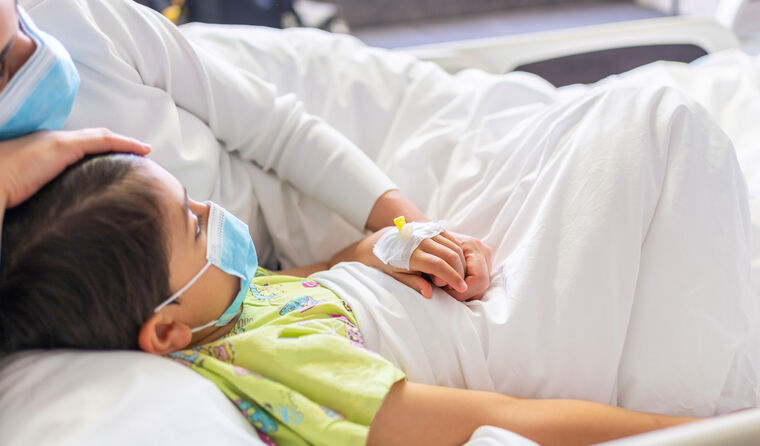The patients are currently recovering from the newly-discovered disease.
Sidra Medicine has discovered and diagnosed a new gastroenterological disease, enabling them to save the lives of two young patients.
The medical research centre and hospital announced on Monday that the disease is a new form of Inflammatory Bowel Disease (IBD), describing its discovery as an achievement that will impact the global treatment and diagnosis of the condition.
The disease was discovered by Sidra’s Human Genetics lab when siblings, Salem and Saoud, presented severe symptoms of an undiagnosed disease.
The detection of genetic and molecular causes became crucial when the doctors learned that the parents were related and experienced two miscarriages.
“We had never come across such a finding in humans before and the diagnosis allowed us to conclude that the mutation was because of a genetic familial trait [homozygous] and was the main cause of the disease,” said research specialist Ahmad Al-Shaibi.
Read also: Researchers in Qatar develop advanced screening tool for genetic diseases
Al-Shaibi along with research specialist Satanay Hubrack Dr Bernice Lo, Principal Investigator were the ones who made the discovery. Sidra Medicine’s findings were also published in the Cellular and Molecular Gastroenterology and Hematology Journal (CMGH Journal).
HMC conducts first of its kind robotic surgery in GCC and Middle East
“We noted a striking loss of mucus in their gastrointestinal cells and that they were highly stressed. They basically had a dysfunctional version of AGR2 which was not allowing for the proper production of mucus,” said Al-Shaibi.
AGR2 enables the production of mucus that protects the gut and its deficiency contributed to the rare condition. Doctors at Sidra named the deficiency as EAGLES. The acronym stands for “Enteropathy caused by AGR2 deficiency, Goblet cell Loss, and Endoplasmic reticulum Stress”.
Sidra said that the medical breakthrough will save countries that lack resources to treat children with symptoms of EAGLES.
Discovery of the case
The case was brought to Sidra’s attention when Salem experienced a cardiac arrest that was caused by extreme symptoms that included severe diarrhoea and dehydration.
By the time the doctors at the Pediatric Emergency unit treating his symptoms resuscitated him, his brain was damaged, which resulted in cerebral palsy.
“When Salem was born, he suffered from frequent diarrhoea, which worsened with time until he suffered a heart attack. He needed to be hospitalised and ended up having to stay in the intensive care unit for 90 days,” said Salem’s father.
The child’s condition had deteriorated over time until he lost his sense of hearing and ability to walk. In 2018, Salem was transferred to Sidra Medicine’s Intestinal Failure Clinic, where he was fed through using Total Parenteral Nutrition (TPN).
The method involves the use of a special formula that is fed through the patient’s veins, bypasses the gastrointestinal.
Salem’s younger brother, Saoud, then experienced similar symptoms, calling for the need to conduct more tests to understand the siblings’ condition.
Unable to diagnose the children at the time, Sidra had drawn blood samples from the siblings to the medical facility’s Human Genetics lab to detect possible genetic and molecular causes.
The department found that the siblings had genetically inherited the condition and the parents’ future children would likely be born with the same disease.
Research has proven that the nature of what has been described as “tribal marriages” increases the chances of homozygosity. This is a genetic condition that occurs in a person who inherits a similar DNA sequence from both parents.
The genetic conditions in Qatar called for a population-specific screening device, as experts believe the Qatari population has “a largely distinct set of genetic disorder risk variants, 85% of which are not seen in Western populations”.
“In the case of these two brothers, what was discovered is truly ground-breaking and will change the lives of future patients diagnosed with the same disease,” said Dr. Mamoun Elawad, Division Chief of Gastroenterology at Sidra Medicine.
Salem is now receiving medication to prevent further symptoms as his brother awaits to receive the same medication, as his condition is being monitored by his parents and Sidra.
“We have been facing these challenges with patience for many years, and this progress has given me, and his mother hope – that the lives of our two children will be better,” said the father.
Follow Doha News on Twitter, Instagram, Facebook and Youtube
